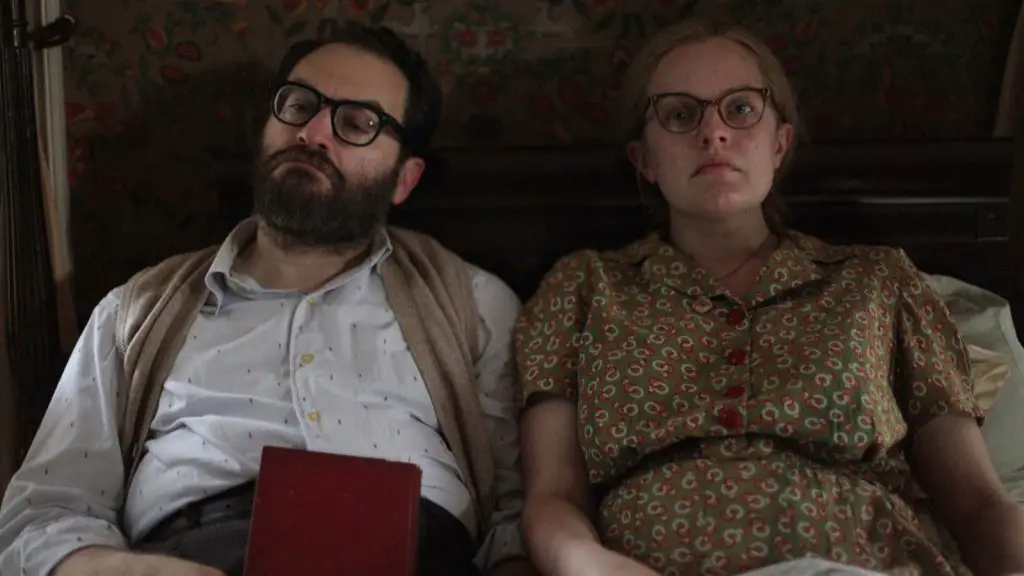
Can you enjoy a narrated documentary of nothing but clips from romantic comedies for 77 minutes? Writer/director Elizabeth Sankey has assembled an entertaining and thought-provoking promenade through the romantic-comedy genre from the inception of talkies to present day in her documentary Romantic Comedy.
Several narrators express opinions throughout from different points of view. Its main theme deals with unrealistic portrayals of women. At the same time, it suggests that these films are made for women and only women watch them. Which brings up a troubling contradiction: If those ideas don’t appeal then why do these films still succeed? Is our culture distorted as a result of the influence of these films? Or are the films an accurate (if highly stylized) document of our distorted culture? Or Is that perhaps a negative feedback loop that reinforces itself?
John Cusack’s character Rob Gordon in the much-maligned rom-com High Fidelity asks this same question in a pop music metaphor: “What came first, the music or the misery? People worry about kids playing with guns or watching violent videos, that some sort of culture of violence will take them over. Nobody worries about kids listening to thousands, literally thousands of songs about heartbreak, rejection, pain, misery, and loss. Did I listen to pop music because I was miserable? Or was I miserable because I listened to pop music?”
Marc Webb’s 500 days of Summer is used as an example of men’s idealized expectations of women (i.e., Manic Pixie Dream Girl). However, the film makes clear from the beginning an awareness that the main character is indulging an unrealistic and damaging fantasy. It’s meant to be critical of the very faults Sankey is damning it for. “Tom (Joseph Gordon-Levitt), greeting-card writer and hopeless romantic, is caught completely off-guard when his girlfriend, Summer (Zooey Deschanel), suddenly dumps him.” Cherry-picking clips to illustrate an unrealistic view of women dismisses the fact that the whole film is making that same point. Tom is a man-child douchebag with wildly out of whack expectations. Expectations he may have set from watching romantic comedies (men do watch them, of course).
Romantic Comedy does this more than once: taking scenes out of context to make a point that may or may not be what the original director meant to say with their film.
“…people are people, and love is love, and it can always be funny and heartbreaking at the same time… “
Mainstream Rom-Coms historically have tended to focus on white, middle class, heterosexual couples with queer people and people of color relegated to flat supporting roles often as offensive stereotypes. However, after making that point as a criticism, Sankey later goes on to show clips of films with LGBTQ characters and people of color as main characters in a supportive cultural context. The landscape of film is changing.
“Mainstream Hollywood” is poked at here, but it’s an institution that is rapidly losing relevance. An expanding world of indie film romantic comedy exists, with people from all ethnicities, nationalities, religions, genders, and orientations. It’s all out there to be discovered. Hollywood no longer rules this genre.
I look forward to bisexual, polyamorous, and transgendered rom-coms, just as a start. If it’s not stupidly obvious by now, people are people, and love is love, and it can always be funny and heartbreaking at the same time.
Sankey also falls into the trap of comparing all of rom-com film history against the mores of 2019, which are increasing difficult to even define given the neo-tribalism of social media. We live in a time of colorfully illustrated moral relativism. There are now as many ethical frameworks as there are Facebook group pages. It’s also constantly changing. We of 2019 are not the final arbiters of morality. “Right” has been and will continue to evolve. Fifty years from now we will be considered the Philistines, and to understand us the people of 2070 will need to know something of our culture and ethics and not compare us to what they consider moral.
When the next generation of relationship films comes around, will the traditional rom-com die a horrible death? What is a Millennial meet cute? What will Gen Z love stories be like? Will we understand the language at all as they stan each other into a ship? Or will they just ghost?
Despite that Sankey isn’t always fair to the filmmakers and films, this trip through rom-com land is nostalgic and satisfying. The emotional manipulation still works as designed, despite the presence of a narrator telling you that you’re being manipulated. Sankey admits as much, professing her love for the films despite her awareness of them often reinforcing patriarchal views of women, generally through the eyes of men.
“ …will the traditional rom-com die a horrible death? What is a Millennial meet cute? What will Gen Z love stories be like? “
The fact that we just shared 800 words for 77 minutes of film should tell you how compelling Romantic Comedy is. The pleasure of the film is enhanced by lovely songs from Sankey’s own band Summer Camp. This is a film you can see repeatedly. Watch, listen, enjoy, consider, and discuss.
Romantic Comedy (2019) Written and directed by Elizabeth Sankey. Starring Jessica Barden, Cameron Cook, Anne T. Donahue. Romantic Comedy screened at the 2019 SXSW Film Festival.
8 out of 10

